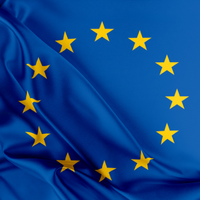
The Council of Europe (CoE) has published a 15-point action plan to support the Belarusian democratic forces, including various activities, human rights courses, seminars on the European Convention on Human Rights, which will be held under the auspices of the CoE for representatives of Belarusian civil society.
The experts of the Belarusian Helsinki Committee see this plan as a generally good tool box for civil society and even more for the professional legal community. These tools will help Belarusian lawyers to prepare the legal system of Belarus for integration into the Council of Europe which would allow a harmonious existence in the space of European standards in general.
The plan was developed jointly with the Council of Europe Contact Group on Belarus.
What is planned (full list here):
- implementation of Council of Europe standards on human rights and the rule of law;
- intensifying political dialogue. More specifically: ensuring the participation of representatives of multiple democratic forces in Belarus in the relevant activities of the Assembly committees and intensifying the interaction of the Assembly with Belarusian civil society, human rights defenders, independent journalists, and the academic communities.
- finalizing the concept of national legislation on equality and non-discrimination with the participation of Council of Europe experts;
- educational events (educational travel opportunities to CoE member states, as well as Council of Europe institutions for Belarusian lawyers in exile; events for young people, etc.);
- creation of an online platform with the CoE resources with information on human rights and the rule of law, adapted to the national context, in the Belarusian language, targeting lawyers, students, teachers, journalists and others interested. Adaptations of these materials will be made by Belarusian experts.
- activities to develop legislation and policies on gender equality and combating violence against women, as well as to promote women's rights in general;
- promotion of the abolition of the death penalty in Belarus
- supporting the shadow reporting by the civil society;
What is the "contact group" exactly?
On September 7, 2022, the Committee of Ministers of the Council of Europe decided to establish a Contact Group for cooperation with the Belarusian society. Cooperation with the country's official authorities was suspended by the Council of Europe in March 2022 due to complicity in Russia's military aggression against Ukraine.
The first meeting of the group took place on November 7.
On the part of the Council of Europe, the contact group included representatives of its key structures, including PACE and the Office of the Commissioner for Human Rights. On the Belarusian side, the group consisted of representatives of various sectors of civil society, including human rights defenders, as well as representatives of political structures: the Office of Sviatlana Tsikhanouskaya, the United Transitional Cabinet and the Coordination Council.
The Group's focus will be on human rights, media and the young generations. The Contact Group plans to make the participatory process as transparent as possible for those who share the values of human rights and democracy and are interested in cooperating with the Council of Europe.
What is the purpose of the "contact group"?
The creation of the "contact group" will allow Belarusian civil society to continue and develop interaction with the Council of Europe in the interests and for the benefit of Belarusians, despite the fact that cooperation with the official authorities has been suspended. One of the key possibilities for civil society that the creation of the group opens is the development of human potential and preparation of reforms for the transformation and inclusion of Belarusian society into the European system of values (including the training of personnel for new institutions).
We recommend reading: «Сотрудничество с Советом Европы сохранит взаимодействие с белорусским обществом, когда власти не готовы исполнять европейские стандарты» (in ru).




